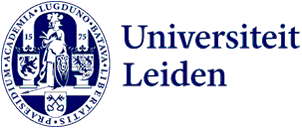365 search results for “data” in the Library website
-
 Jan van Rijn
Jan van RijnFaculty of Science
-
Connect & Visualise: Data journeys in popular science
Webinar with Q&A
-
Connect & Escape: Data Horror Escape Room
Workshop
-
 Yingjie Fan
Yingjie FanFaculty of Science
-
 Franco Donati
Franco DonatiFaculty of Science
-
 Hadassah Drukarch
Hadassah DrukarchFaculteit der Rechtsgeleerdheid
-
 Armel Lefebvre
Armel LefebvreFaculty of Science
-
 Richard van Dijk
Richard van DijkFaculty of Science
-
 Willem Jan Palenstijn
Willem Jan PalenstijnFaculty of Science
-
 Anton Schreuder
Anton SchreuderFaculty of Science
-
 Rob Konijn
Rob KonijnFaculty of Science
-
 Sina Mohammadi
Sina Mohammadi -
 Saber Salehkaleybar
Saber SalehkaleybarFaculty of Science
-
 Ugo Vespier
Ugo VespierFaculty of Science
-
 Lincen Yang
Lincen YangFaculty of Science
-
 Francesco Bariatti
Francesco BariattiFaculty of Science
-
 Marieke Vinkenoog
Marieke VinkenoogFaculty of Science
-
 Rogier Creemers
Rogier CreemersFaculty of Humanities
-
Workshop: How to write a Data Management Plan (DMP)
Workshop
-
Workshop: How to write a Data Management Plan (DMP)
Workshop
-
Workshop: How to write a Data Management Plan (DMP)
Workshop
-
Workshop: How to write a Data Management Plan (DMP)
Workshop
-
Workshop: How to write a Data Management Plan (DMP)
Workshop
-
How to write a Data Management Plan (DMP)
Research
-
Workshop: How to write a Data Management Plan (DMP)
Workshop
-
Workshop: How to write a Data Management Plan (DMP)
Workshop
-
Workshop: How to write a Data Management Plan (DMP)
Workshop
-
Data Carpentry with R for Social Sciences and Humanities
Workshop
-
Data Carpentry with R for Social Sciences and Humanities
Workshop
-
Data Carpentry with R for Social Sciences and Humanities
Workshop
-
 Christos Athanasiadis
Christos AthanasiadisFaculty of Science
-
 Gijsbert Boon
Gijsbert BoonFaculty of Science
-
 Amin Abolghasemi
Amin AbolghasemiFaculty of Science
-
 Qianru Meng
Qianru MengFaculty of Science
-
 Antoine Coudard
Antoine CoudardFaculty of Science
-
 Mojgan Chaichian Maleki
Mojgan Chaichian MalekiFaculty of Science
-
Mark de Rooij
Faculty of Social and Behavioural Sciences
-
 Alex Brandsen
Alex BrandsenFaculty of Archaeology
-
 Jacopo Di Ventura
Jacopo Di VenturaFaculty of Science
-
 Andreas Sauter
Andreas SauterFaculty of Science
-
 Felix Kleuker
Felix KleukerFaculty of Science
-
 Alberto Ceria
Alberto CeriaFaculty of Social and Behavioural Sciences
-
 Khashayar Fathinejad
Khashayar FathinejadFaculty of Science
-
 Sjoerd Huisman
Sjoerd HuismanFaculty of Social and Behavioural Sciences
-
 Hanjo Boekhout
Hanjo BoekhoutFaculty of Social and Behavioural Sciences
-
 Koen Ponse
Koen PonseFaculty of Science
-
 Arjen Doelman
Arjen DoelmanFaculty of Science
-
 Diego Garlaschelli
Diego GarlaschelliFaculty of Science
-
 Frank den Hollander
Frank den HollanderFaculty of Science
-
 Guus Toussaint
Guus ToussaintFaculty of Science
